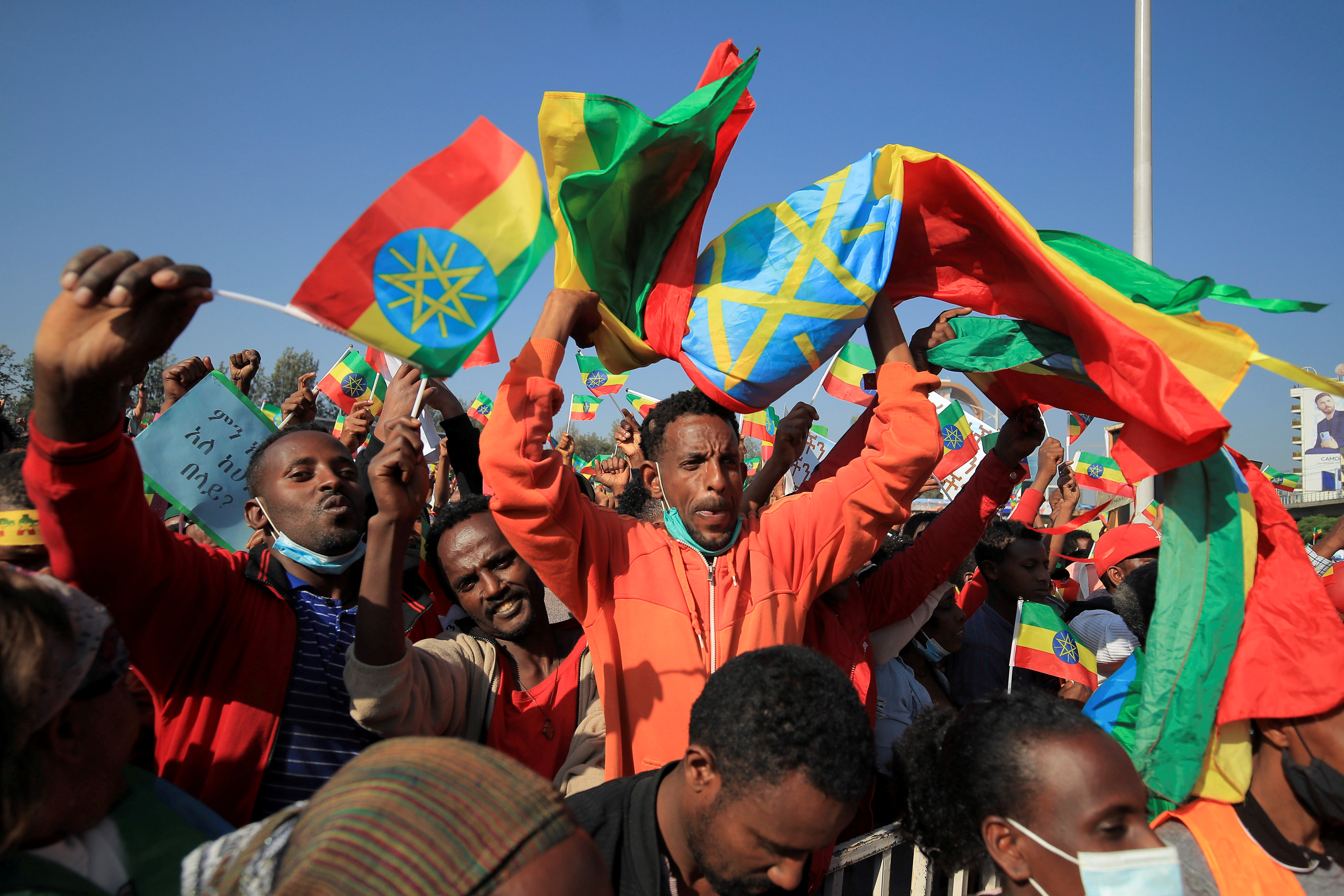By Brad Settelmeyer

Image Credit: REUTERS/Tiksa Negeri
Ethiopia has been embroiled in constant conflict between government forces and the Tigray People’s Liberation Front (TPLF) since the fall of 2020, and there seems to be no end in sight.
If this wasn’t bad enough, a humanitarian crisis has been ravaging Tigrayan Ethiopians. As reported by the United Nations, humanitarian assistance recently reached an all-time low.
Thankfully, the Ethiopian government has taken some steps towards ending the ongoing conflict. One significant step which the Ethiopian government has undertaken has been the release of high-profile prisoners, two of which are senior political members from the region of Orymiya: Bekele Gerba of the Oromo Federalist Congress and Jawar Mohammed of the Oromiya Media Network.
The government also released TPLF founder Sebhat Nega, a significant step given that TPLF has been the main opposition to the government during the more than 14 months of fighting.
While this step is not something that would end hostilities outright, it is a significant step towards creating an atmosphere of peace between federal and regional forces.
Along with the prisoner releases, the government has also taken steps to create a national dialogue committee.The Federal Parliament passed a bill that paved the way to establishing a commission on national dialogue.
As the bill itself states, “the commission’s establishment will pave the way for national consensus and keep the integrity of the country.” The commission is showing great potential in creating common ground between combatants and is a great vehicle for potential peace to be established in Ethiopia.
Considering all these developments, one might assume peace could be achieved in the conflict between federal and regional forces.
However, this is not a case for optimism, as the steps taken by the federal government are not enough to create the national consensus Addis Ababa hopes to establish. The current course undertaken by the Ethiopian government might even weaken the conditions in which peace could be achieved.
The main reason for which the national dialogue and prisoner releases might fail falls on the fact that the Ethiopian government is not directly involving TPLF forces in the national dialogue process. Given that the TPLF is the main combatant currently fighting Ethiopian forces, it seems crazy that they would be excluded from a process of ending fighting within the region.
Beyond the inclusion of the TPLF from the national dialogue, many also worry about the flawed design of the proposed national dialogue.There are a few main criticisms which many use to argue against how the current national dialogue is set up.
Many see Prime Minister Abiy Ahmed as pressured by the international community to act towards restoring peace in the region, and as a result the prime minister’s motives are not humanitarian but instead to save face on the international political scene.
Because of this international pressure, there is much worry over if there will be any substance to the proposed national dialogue, or if it will be all smoke and mirrors only to rehabilitate Ethiopia’s image on the world stage.
On a similar note, a second critique arises from how many see the national dialogue as a tool of the government to help alleviate short-term problems and not longer-term stability and peace which national dialogues are usually set to accomplish.
Instead of creating unity and trust for the government, the national dialogue is no more than a way to deceive the people into believing the government is working towards establishing peace. The prisoner release mentioned above could be seen as the government attempts at establishing peace but not fully committing to working towards it.
While tragic as it is, this is not the first and most significant time in which a combatant in war has completely disregarded another combatant during talks of peace.
When America was at war against the Taliban, the U.S. government made the fatal mistake of leaving them out of the Bonn, Switzerland peace talks in December 2001. Many high-ranking U.S. officials would later regret the decision to not include the Taliban in the talks at Bonn, as documented in Craig Whitlock’s book The Afghanistan Papers.
While circumstances might be somewhat different between Ethiopia and Afghanistan, both cases can show, or possibly show in the case of Ethiopia, the price of exclusion in peace processes.
Talks and dialogue aside, the conflict in Ethiopia continues to rage on with no end in sight. Even if one was to take the Ethiopian and Abiy Ahmed’s word without scrutiny on their desire to establish peace and stability, the rise in drone strikes would somewhat diminish the government’s own efforts to get to that point. The government’s own actions are discrediting the already ineffective planned national dialogue!
Whichever side one supports, all sides must be present and respected when discussing a way forward from the ongoing conflict in Ethiopia. All other ways, as currently seen by Abiy Ahmed’s government, will surely fail and result in more casualties.
Brad Settelmeyer is a regular contributor and assistant editor for the Realist Review. A recent master’s student at Northeastern University, his interests include conflict resolution and humanitarian crises


Leave a Reply